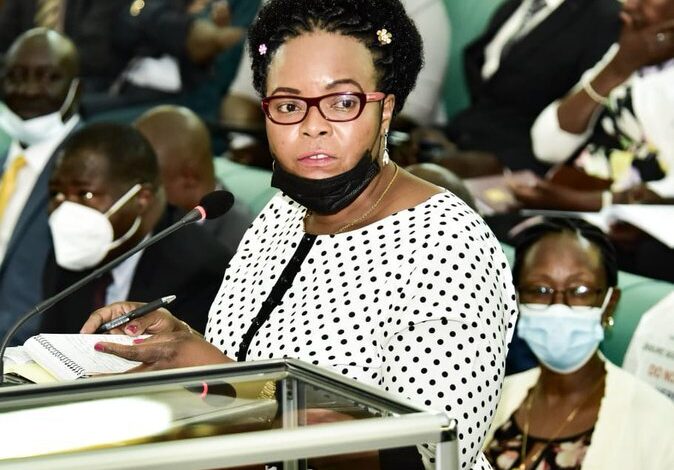Ugandans weigh in on new “Rent-to-Own” housing initiative
The Minister emphasized that this model could help many Ugandans realize the dream of owning a home, a dream that often seems out of reach due to rising property prices and limited access to affordable housing loans.

The government of Uganda is set to reintroduce a housing model known as the “Rent-to-Own” system, which aims to make homeownership more accessible to citizens.
The initiative was recently announced by the Minister of State for Lands, Persis Namuganza, during a radio interview with the National Broadcaster UBC Radio, sparking conversations across the country about its potential benefits and challenges.
A global model, revisited
Minister Namuganza explained that this housing system, which allows tenants to eventually own their rented homes, is widely recognized around the world. The system gives tenants a rental period of between 10 to 15 years, after which ownership of the home is transferred to them.
The Minister emphasized that this model could help many Ugandans realize the dream of owning a home, a dream that often seems out of reach due to rising property prices and limited access to affordable housing loans.
“This initiative was first introduced by the late President Muammar Gaddafi, who shared the idea with President Museveni,” Namuganza noted. “However, after Gaddafi’s passing, the project stalled. Now, we’re bringing it back to Parliament for consideration, and with the support of new development partners, we are optimistic about its implementation.”
The initiative, if approved, could see the construction of modern housing units that will help relocate people living in slum areas to decent, standard housing. With the government’s plans now in the pipeline, people are voicing their hopes and concerns.
Citizens’ reactions: Hope and Skepticism
Across Uganda, reactions to the Rent-to-Own model have been mixed. Many Ugandans, especially those living in rented homes or slum areas, see it as a beacon of hope.
“I think this is a great initiative,” said Sarah Nakitende, a mother of three living in Kampala’s Namuwongo slum. “I’ve been renting for over 15 years, and owning a home has always felt impossible for someone like me. If this plan is real, it could change our lives.”
For young professionals, like accountant Brian Kasozi, the Rent-to-Own system could also provide a way to escape the perpetual rent cycle. “I’m currently renting a small apartment in the city, and it’s hard to save for a home at the same time. If I knew that the rent I’m paying now could lead to owning that house, it would make things easier,” Kasozi said.
However, some remain skeptical about the government’s ability to follow through on the promise, given past delays in housing programs.
“I’ve heard these things before, and they sound good, but where is the proof?” asked Peter Otema, a taxi driver in Wakiso. “What guarantees do we have that this won’t just remain an idea on paper like other government projects?”
Experts Weigh In
Experts in the housing sector believe that the success of the Rent-to-Own model will depend on proper planning, transparency, and long-term financial backing.
“Housing projects are complex, and they require steady funding and good governance,” said Justus Byaruhanga, a real estate developer in Uganda. “If the government can partner effectively with development partners and ensure that the process is fair and transparent, then this could provide a long-term solution to Uganda’s housing deficit. But without those elements, it could run into the same challenges that have plagued past housing initiatives.”
Minister Namuganza also touched on these concerns, assuring the public that several development partners have already expressed interest in the project. “They’ve written to the President, showing their readiness to support this housing plan, and that’s a good sign that we’ll see this through,” she stated.
As the government prepares to reintroduce the Rent-to-Own proposal to Parliament, many Ugandans are watching closely to see how the plan unfolds. The promise of affordable homeownership has the potential to address the country’s housing challenges, but only time will tell if the system can deliver on its promise.
Meanwhile, the voices of hopeful tenants and cautious skeptics continue to shape the public discourse on this much-anticipated initiative.
For citizens like Sarah Nakitende, the prospect of owning a home is worth the wait: “We’ve struggled in slums for too long. I just pray this becomes a reality.”







